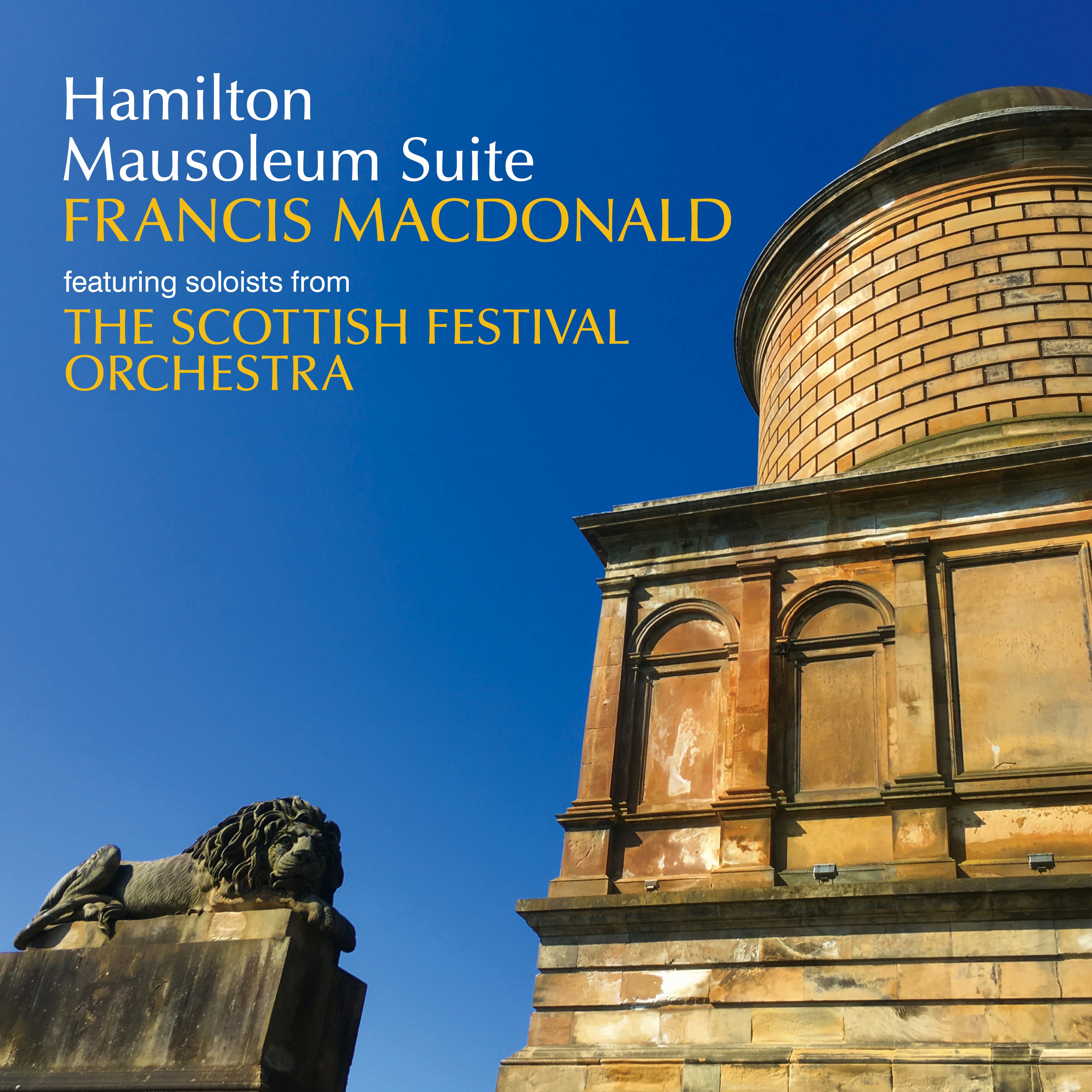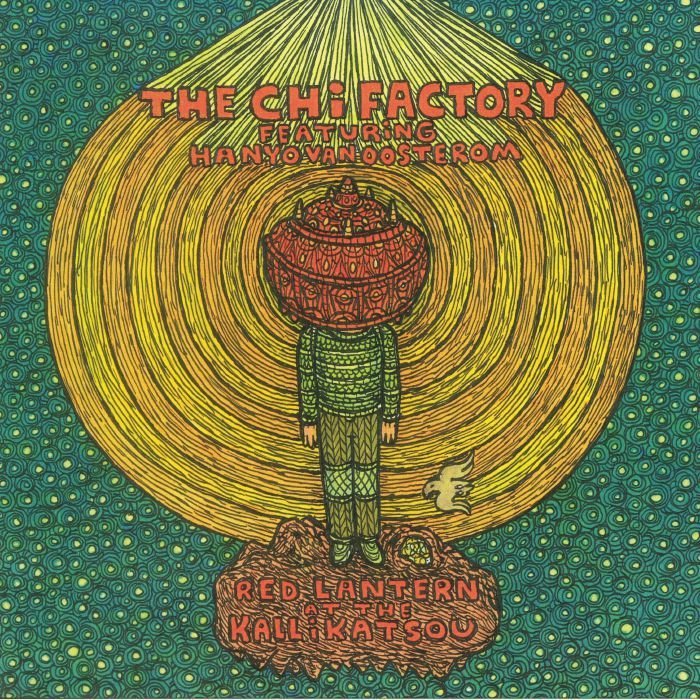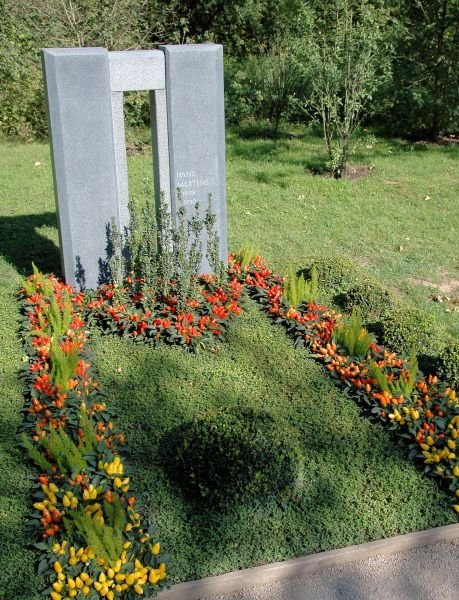A New Sound Of An Old Instrument: An Interview With Francis Macdonald
Piece by Scott McCready.

Francis MacDonald makes contemporary classical music that could sit comfortably on the roster of labels like Erased Tapes, ECM or Village Green. He is also a key figure in the Glasgow Indie-Rock Underground. His first band, C86 era favourites The Boy Hairdressers, comprised two future members of Teenage Fanclub and Turner Prize winning artist, Jim Lambie. He has recorded and toured with Teenage Fanclub intermittently since their inception and worked with cult rock musicians such as Alex Chilton, Kim Fowley, Dan Penn, Kevin Ayers, Robert Forster, Edwyn Collins, The Pastels and Belle & Sebastian. In between times he has served as manager to Glaswegian 4AD act Camera Obscura and Nirvana favourites, The Vaselines and run two record labels, Shoeshine and Spit & Polish.
Classical music is where his head is at right now. This week sees the release of his second full album of original material, ‘Hamilton Mausoleum Suite’. Recorded in one day inside the former tomb of Alexander the 10th Duke of Hamilton the recording was conceived to take advantage of one of the longest echoes of any man-made building in the world. An album of chamber music (string quarter & harp) ‘Hamilton Mausoleum Suite’ was composed, arranged and produced by Francis and features soloists from the Scottish Festival Orchestra. Fans of Bing & Ruth, Olafur Arnalds or Philip Glass’ solo piano pieces should find something to love here.
I really loved your first classical album, 2015’s ‘Music for String Quartet, Piano and Celeste’. ‘Sep 20’ is one of those pieces of music you hear once and know, “I am going to love this forever”. You don’t come from a classical background. Where did the impetus to explore writing classical music come from?
Thanks. Sep 20 was a minor breakthrough in terms of my writing and working out ‘my sound’, whatever that is. I suppose making this kind of music is partly a result of making an earnest attempt to start listening to classical music a few years ago. Prior to that album I had been making music for filmmakers and TV, usually using music samples because there is rarely the budget to hire in other musicians. I realised that if I was ever going to have the experience of writing for classical musicians - I had to get on with it myself…
You’ve been involved in the Glasgow indie scene since the mid-1980s. Glaswegian bands have always been very open in acknowledging the acts that inspire them. What music were you aspiring to with ‘Music for String Quartet…’ and ‘Hamilton Mausoleum Suite’?
I heard Ludovico Einaudi’s Nightbook playing in a record shop in Glasgow one day. That was definitely a butterfly-flapping-its-wings moment that helped lead me down a certain road. I can be a bit of a musical magpie. I'll cherry-pick influences and ideas from all over - Philip Glass, Arvö Part, I borrowed a chord from Stravinsky at the start of The 10th Duke on the Hamilton Mausoleum Suite album, Morricone…I heard Steve Reich once remark "composers always listen with malice aforethought”. Same goes for songwriters. Kim Fowley would have said “steal what you can”.
And modern classical music? I hear your music as being quite aligned with the output of labels like Erased Tapes and Village Green? What contemporary classical do you listen to?
I am aware of contemporary work - especially Einaudi and a fair few film composers. But I probably immerse myself more in the established classical stuff. A lot of contemporary composers are classically trained (I’m not). So maybe I want to get some of the musical grounding that they have had through formal study. There is soooo much out there to try and get my ears around. If I pick once composer, say Shostakovich or Schubert, I’m immediately overwhelmed by where to start how much there is to listen to and what to re-listen to, working out the difference between enjoyment and endurance. Also, I don’t think bands or composers necessarily listen to artists that are a version of what they do - in fact I think the inclination would be to seek out something different.
How did ‘Hamilton Mausoleum Suite’ come about?
I’ve always been aware of the building. It’s unusual and imposing. The secondary school that I attended in Hamilton (now razed to the ground) was a stone’s throw. I always spot it poking through the tree tops from the M74 driving south of Glasgow - or driving home. I had the notion of recording there because it has a famously long echo. Then I thought maybe I could write music especially for or about the Mausoleum. I had a meeting with the museum officer who liked my ‘Music for String Quartet, Piano And Celeste’ album which was a help. Once I got the green-light I could allow myself to become attached to the idea - and I started writing music. I think David Byrne’s Ted Talk on music venues influenced my thinking too. I decided on a manageable ensemble of string quartet and harp. And most of the pieces were inspired by the building in some way - The 10th Duke, Stone Lions Lullaby, Whispering Walls, Sarcophagus (the Duke of Hamilton’s remains were interred in an Egyptian sarcophagus on a plinth in the mausoleum for years).
You recorded the album in one day inside the Mausoleum. What was that experience like? And why in one day?
It was amazing really. Charged and almost spiritual. Inside it feels like a tomb and also a bit like a mini-cathedral. And I’d had this idea which became a plan and now here we were actually doing it. We did it in day because if we'd done it in two days it would have cost twice as much (paying venue hire, musicians, recording engineer, etc.). We rehearsed the music for a full day before so were pretty well prepared. The musicians all seemed to groove to hearing their instruments in that sonic environment - although they had to wear holey jumpers, blankets and finger-less gloves.
What were you trying to achieve with the new album that’s different to ‘Music for String Quartet….’
With that album… there wasn’t really a ‘subject’ as such; just a plan to write filmic music for string quartet, a piano and a celeste (borrowed from the RSNO (Royal Scottish National Orchestra)). And I was going to play the piano in order to stretch myself a little bit and put myself in the middle of the thing. At the end of that process I had learned a lot about composition and arrangement and I wanted to build on that but not just do a re-tread: Now That's What I Call Music for String Quartet, Piano & Celeste - Volume 2.
With this new album the subject was the building and I decided not to be a performer; I was just going to be the composer. This freed me up a little bit. My piano playing is quite primitive. Instead of piano/celeste I would be using the wonderful harpist Sharron Griffiths. The string players all play with the Scottish Ballet Orchestra. Really top notch - and with a great attitude. So I could write music that would be beyond me as a co-performer. That said I didn’t want to write music that was overly complex for the sake of it.
Although your classical music is very clearly a different thing, there’s a feel to the music – a sense of space, melody and lyricism - that’s akin to the scene you’re more well known for. For example, you could quite easily listen to your Teenage Fanclub bandmate Gerry Love’s ‘Lightships’ project and your classical music in the same sitting and it would make sense. Is that fair? Any thoughts on why?
I suppose there is no getting away from my association with melodic songs. I am less interested in creating soundscapes, challenging noises or ambient wallpaper music (even although it will inevitably be listened to as background music). Sometimes my pieces do have an A/B or verse/chorus-like structure. Even if I am trying to do something bit less predictable - in terms of structure, time signatures, the development of the melody or harmony whatever, I still want to write music that people might want to listen to - in the same way that a songwriter wants to write a song that ‘works’.
As well as being a musician you’ve been embedded in the business side of the indie music scene for a number of years, as a band manager and label owner. You release your music yourself. Is the business side of making, recording, marketing and selling classic music much different?
It's the same in a different way. Try and make a good record. Try and figure out who might buy it and where. And how might they hear about it? What works on Classic FM may not work on 6music and vice versa - but with the odd thing you never know. In truth, I don’t really know where I fit, but that’s OK.
What are your ambitions for your life in the classical realm? What’s next and where would you like to see things head?
I want to get better at it and hopefully find a wider audience. I’d like to work with more filmmakers but also other arts; dance, theatre. I have an idea for a new album. Watch this space.
Final question. It’s a looking back one. Having not really been talked about in decades the music and style from when you were first in bands is undergoing a mini-resurgence. It’s there documented in Sam Knee’s photography anthologies, Neil Taylor’s history ‘C86 and All That’ and even David Keenan’s book ‘This Is Memorial Device’ could be viewed as a reappraisal of the post-punk setting in satellite towns of Glasgow that birthed the Bellshill sound you were a part of. What are your memories of then, and as a band manager/label owner do you have any thoughts on why there’s this reappraisal happening now?
I don’t know. I really don’t look back all that much. If I wasn’t making music anymore, maybe I’d want to reflect - but some things I was involved with, I am simply less enamoured with now.
I can’t think of any brilliant stories right now but I’ve crossed paths with some interesting music folks - Laura Cantrell, Dan Penn, Alex Chilton, Chip Taylor, John Herald, Ben Vaughn, Michael Shelley (his debut album Half Empty is one of my Desert Island Discs), Teenage Fanclub touring Spain with The Go-Betweens, playing solo acoustic shows in Brazil (huh?). And I blogged about my experiences with Kim Fowley when he died.
Teenage Fanclub are an interesting touchstone. They never split up and reunited on a nostalgia trip. They just kept focused on writing good Verse-Chorus guitar/bass/drums songs and making albums when it felt right. Maybe younger listeners are discovering them through their parents but a lot of the original audience never went away. Maybe a good song that someone wants to let their pal hear has a constancy that trumps the zeitgeist?
I made a record, “Bonjour”, with the London-based artist Harry Pye I think there were some older influences there and I enjoyed doing it. Some guitar pop songs and some spoken word pieces. But that felt like more of a diversion from the road I am on now, as opposed to the other way about.
Writing for classical musicians and moving forward in that area feels like a new beginning.
I was excited that James MacMillan conducted an orchestral piece of mine while Craig Armstrong sat in the control room smiling approvingly (this was the Lost Songs of St Kilda album for Decca Classics). So hopefully there’ll always be some new memories around the corner.
‘Hamilton Mausoleum Suite’ is out 26th January on TR7. Thanks to Francis and Josh for the interview.


